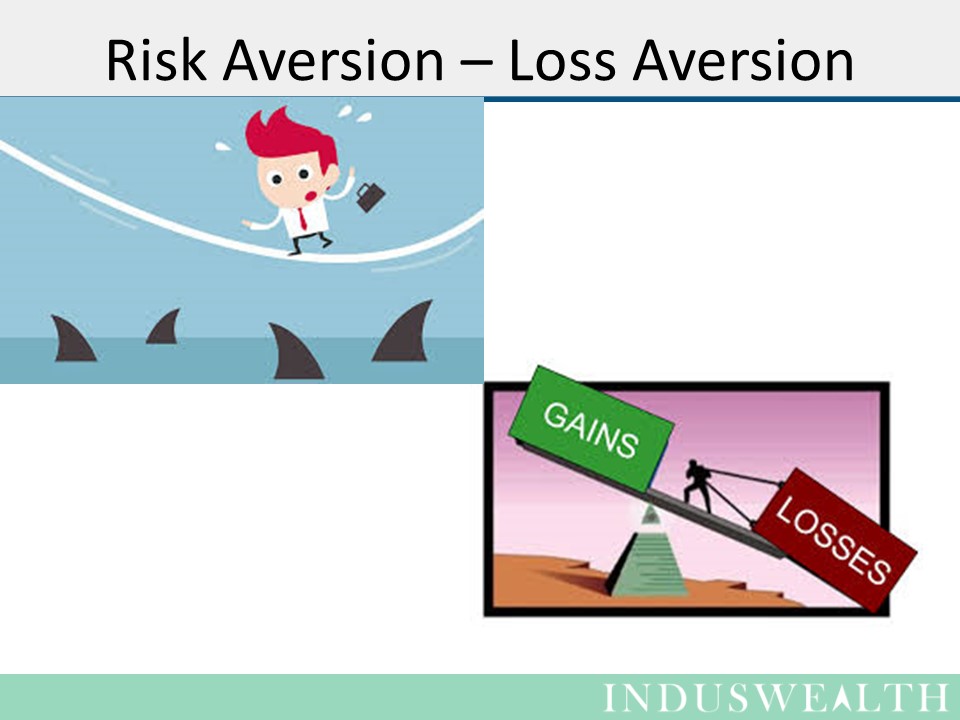A recent meeting with a friend brought up a topic of risk aversion, and loss aversion in investing.
I was reviewing his portfolio. He had purchased stocks with an opportunistic mindset and many of those had failed to generate expected returns. I suggested that he should liquidate the positions and book a loss. He was reluctant to do so. I asked him if he had current value of the portfolio in cash today would he buy the same securities. He was clear that he would not do so. But he was reluctant to sell the stocks in which he would not invest.
He knows that he has incurred a loss as the prices have fallen steeply, but the act of selling it at this point will make him realize (book) the loss. If he holds the position there as a “hope” that the losses can be recovered, once the positon is sold then “recovery” option is closed. This is loss aversion.
Risk aversion is an aversion to take on risks that are beyond one’s risk appetite. Risk appetite is a combination of ability to take risks and willingness to take risks. If the person’s wellbeing is not materially impacted if the risk materializes then the person has the ability to take that risk. Just because a person has an ability to take a risk does not mean that the person will be willing to do so. Hence willingness to take risks is also important. I believe that ability to take risks is more important than the willingness to take risks – because without the ability – willingness has no relevance.
All investments are bets on outcomes in the future. Investment outcomes are not certain – hence the risk. Future will take one of the many paths that it could. Once it takes a path then the investor will know whether the bet has paid off.
For instance, if I buy a stock expecting the company to grow its revenues by 20% in the year. By the end of the year I will know if the earnings grew as expected or not. At this point my original bet is complete – I should ideally close the transaction by booking a profit or a loss. If I continue to hold the stock, then I am making another bet.
It is alright to make another bet by deciding to hold on to the stock, but one should realize that this is a new bet. This is very important especially when it is a loss – because it is very difficult for a person to acknowledge that her bet did not pay off. It will be much easier to change to initial expectation at the end of the year than to face the hard reality of a loss.
Investors should approach each investment with a sense of risk aversion. They should take on the risks only if they have the appetite for the risk, i.e., they have ability to take the loss of the investment does not work out as expected and, they have the willingness to do so.
Investors should have a clarity of their expectations from the investment – what they expect to happen and by when. This clarity will help make the determination if the bet has paid off or not. Ideally one should write down expectation upfront, that way one can avoid the “fudge factor” that comes up as time goes by.
Once the determination of the outcome is made, one should realize that the initial bet is closed. If one continues to hold – this should be treated as a new bet. Continuing to hold should not be because one is reluctant to book a loss. A good test for holding would be to check if one would purchase the stock at that point if it was not already in the portfolio.
One should realize that booking loss is hard but avoiding a loss could be much worse. One should always remember that risk aversion is rational but loss aversion is not.
Happy Investing….
